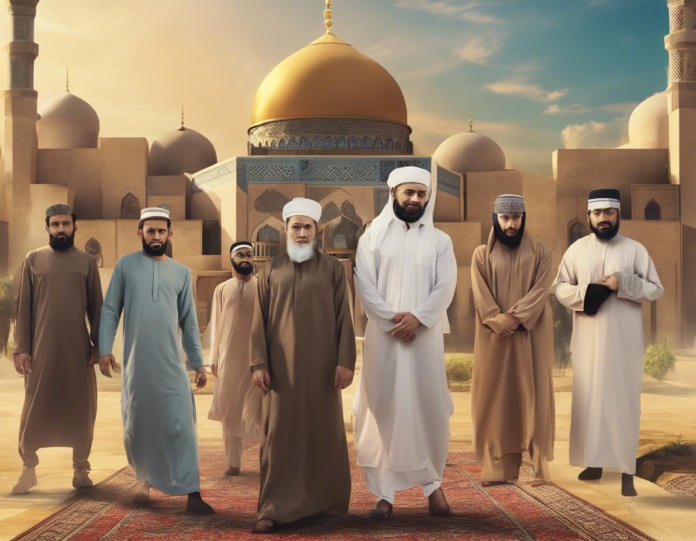Introduction
Films have the power to evoke emotions, spark conversations, and provide a window into different cultures and beliefs. When it comes to Islamic movies, they have the ability to showcase the rich tapestry of the Muslim world, its traditions, values, and diverse stories. In this comprehensive guide, we will explore some of the top Islamic movies that have left a lasting impact on audiences worldwide.
Understanding Islamic Movies
Before delving into specific movie recommendations, it’s important to understand what constitutes an Islamic movie. These films may revolve around Islamic themes, characters, values, or historical events related to Islam and the Muslim world. While some movies explicitly deal with Islamic topics, others subtly incorporate Islamic teachings or cultural elements into their narratives.
Top Islamic Movies
- The Message (1976)
Directed by Moustapha Akkad, “The Message” is a classic in the genre of Islamic movies. The film chronicles the life of Prophet Muhammad, his teachings, and the early days of Islam. With a focus on faith, perseverance, and compassion, “The Message” offers a profound portrayal of Islamic history and spirituality.
- Omar (2013)
Directed by Hany Abu-Assad, “Omar” is a gripping Palestinian drama that delves into themes of love, betrayal, and resistance. The film follows the life of a young Palestinian man caught up in the complexities of the Israeli-Palestinian conflict. Through its nuanced storytelling, “Omar” sheds light on the challenges faced by individuals living under occupation.
- Arranged (2007)
“Arranged” is a heartwarming film that explores the friendship between a Muslim woman and an Orthodox Jewish woman who bond over their shared experiences of arranged marriages. As they navigate societal expectations and personal desires, the two friends discover common ground and a deep respect for each other’s traditions.
- The Stoning of Soraya M. (2008)
Based on a true story, “The Stoning of Soraya M.” is a powerful and harrowing film that sheds light on the brutal practice of stoning in an Iranian village. The movie follows the tragic fate of Soraya, a woman falsely accused of infidelity, and the fight for justice in the face of oppression and injustice.
- Wadjda (2012)
Directed by Haifaa al-Mansour, “Wadjda” is a groundbreaking Saudi film that tells the story of a young girl’s dream to own a bicycle in a society where such aspirations are frowned upon for girls. Through Wadjda’s journey of defiance and determination, the film challenges societal norms and celebrates the power of individual agency.
Islamic Movies: Beyond Stereotypes
It is essential to note that Islamic movies come in various forms and genres, offering nuanced perspectives on faith, culture, and identity. While some films may address hard-hitting social issues or historical events, others focus on personal journeys of love, resilience, and self-discovery within an Islamic context. By exploring a diverse range of Islamic movies, audiences can gain a deeper appreciation for the complexities and beauty of the Muslim world.
FAQs:
-
Are Islamic movies only about religious themes?
Islamic movies can encompass a wide range of themes beyond religion, including culture, tradition, history, and social issues. While some films may have explicit religious themes, others incorporate Islamic values subtly into their narratives. -
Do Islamic movies cater only to Muslim audiences?
While Islamic movies may resonate strongly with Muslim audiences due to shared cultural references and beliefs, their universal themes of love, compassion, and justice can appeal to viewers of all backgrounds. -
Are all Islamic movies serious and somber in tone?
Islamic movies come in various tones and genres, ranging from dramas and historical epics to comedies and coming-of-age stories. Just like any other film, Islamic movies can evoke a wide range of emotions. -
How can Islamic movies contribute to interfaith dialogue?
By showcasing diverse cultural perspectives and fostering empathy towards different belief systems, Islamic movies can play a crucial role in promoting interfaith understanding and dialogue. -
Are Islamic movies a recent phenomenon?
While the popularity of Islamic movies may have increased in recent years, there is a rich history of cinema from Muslim-majority countries that dates back several decades. These films have made significant contributions to the global cinematic landscape.
In conclusion, exploring Islamic movies allows viewers to engage with the multifaceted narratives and experiences of the Muslim world. By watching and appreciating these films, audiences can broaden their understanding of Islamic culture, history, and values, while also enjoying captivating storytelling and memorable performances. As the world of cinema continues to evolve, Islamic movies will undoubtedly remain an important and vibrant part of the film industry.

